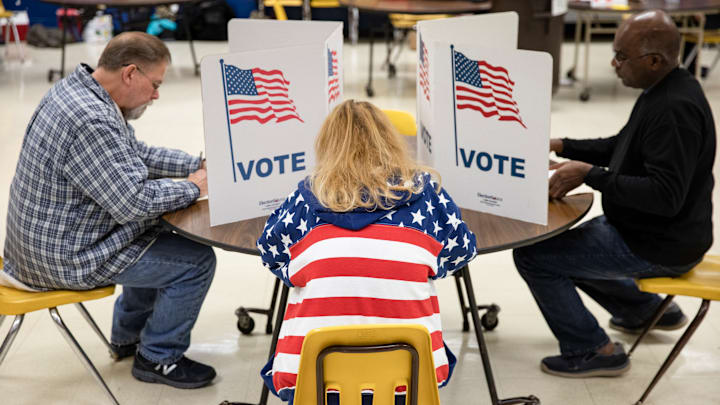You’ll hear the term “Super Tuesday” in the news a lot. But what is it?
Super Tuesday is one of the most significant days in American politics and can shape the outcome of the following presidential election.
Any modern democracy will inevitably be quite complicated. This is just a natural consequence of modern societies being complex. It’s important for citizens to be informed, in order to exercise their right to participate in that democracy. The necessary complexity of democracy results in words and phrases that can be quite confusing. If you have questions, just know that you’re not alone.
Super Tuesday is the day, typically around February or March, when the greatest number of states hold their primaries, to select their candidate for the presidential election. The exact date, and which states hold their primaries, varies from year to year, as states are free to set their own election dates, but traditionally all US elections are held on a Tuesday.
In 2020, 14 states participated in Super Tuesday for the Democratic Party. They were Alabama, Arkansas, California, Colorado, Maine, Massachusetts, Minnesota, North Carolina, Oklahoma, Tennessee, Texas, Utah, Vermont, and Virginia, plus the territory of American Samoa. Those states comprised 40 percent of the US population. This included the two largest states by population, California and Texas. Each individual state election results in a number of delegates being pledged to vote for the winning candidate at the party’s convention.
But why have Super Tuesday?
States that participate in Super Tuesday do so in order to increase their influence in the national election, because the candidate with the most delegates after Super Tuesday is the hot favorite to be their party’s nominee. For this reason, it’s been proposed that states should form geographic blocks, so that a candidate may earn the label of the Southern favorite, or the Midwestern favorite.
Having a hot favorite candidate also benefits the parties, as it allows them to present a united front, and rally around their man or woman. Some say this was prompted by the notoriously chaotic 1968 Democratic primary season. The Primaries lacked a clear favorite after incumbent president Lyndon B. Johnson pulled out of the race, and popular candidate Robert F. Kennedy was assassinated. The following Democratic National Convention, which is usually a formality was marred by tension and conflict. Richard Nixon of the Republican Party won the 1968 election in an electoral college landslide. Though it must be noted that the popular vote was within a one percentage point margin, Nixon did go on to win the 1972 election in an unprecedented landslide.
America is the world’s oldest, and the world’s second-largest democracy. With that size and scope, it’s easy to feel overwhelmed by the complexity of the system and feel alienated from it. But democracy is a collective effort, the more regular people participate, the more power rests with the people. The best way to get involved is to dive in. Vote in as many races as you can, including the primaries.
